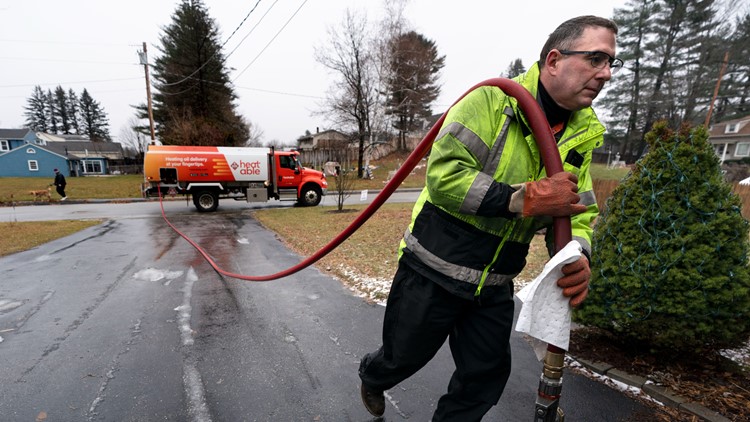AUGUSTA, Maine — Leaders of the Maine Legislature have assembled a temporary committee to convene a hearing on a $474 million emergency heating assistance proposal, a development that was hailed by the leader of Senate Republicans who rejected the first attempt at passage, officials said Friday.
The public hearing scheduled for Wednesday comes after Republicans in the Senate thwarted Democratic Gov. Janet Mills’ proposal calling for $450 relief payments to 880,000 Mainers on the opening day of the session, arguing that a legislative hearing was necessary to ensure transparency.
Senate Republican leader Trey Stewart said Friday the swift action reflects “the storied tradition of Maine bipartisanship and protects the institution of the Legislature."
“I’m confident that after thorough public review and input, the Legislature will be able to move swiftly to deliver relief for the people of Maine,” added House Republican Leader Billy Bob Faulkingham.
Senate President Troy Jackson and House Speaker Rachel Talbot Ross will serve as leaders of the Legislature’s Appropriations and Financial Affairs Committee, which will hold the public hearing.
The goal would be to send the fully vetted proposal back to a vote when the full Legislature reconvenes on Jan. 4. Each chamber must pass the law with a two-thirds majority for the legislation to go into effect immediately upon the governor's signature — allowing the state to expedite the mailing of checks.
“As I said on swearing-in day, Maine people are counting on us to rise to the occasion and deliver a compromise energy relief package that treats this heating crisis like the emergency it is. We cannot let them down,” Jackson said.
The hearing will focus on the governor’s original proposal.
It calls for $398 million to be used to provide $450 payments to an estimated 880,000 residents, adding up to $900 total for an average family. It also would provide $40 million to bolster the federal heating assistance program that’s administered through community action partnerships.
It also would include $10 million for emergency fuel assistance and $21 million to bolster an emergency relief housing fund to help people experiencing homelessness.
More than half of the funding for the proposal would be courtesy of rosier-than-expected revenue projections to the tune of $283 million for the current fiscal year.



